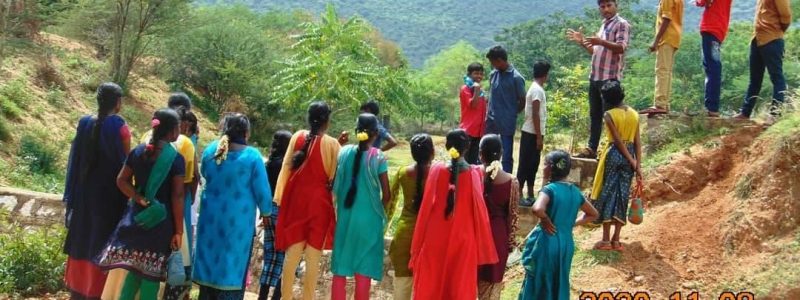About

CIRHEP (Centre for Improved Rural Health and Environmental Protection) is a legally registered, non-governmental, voluntary organization engaged in promotion of sustainable rural development and natural resource management in the dry land areas Dindigul, Madurai and Theni Districts of Tamil Nadu. It also works for the improvement of the health and nutrition of rural people and protecting the rural landscape and environment through promotion of watershed development and sustainable agriculture approaches. It also supports the rural community by providing environmental education children, nutritional, establishing replicable models on ground, empowering women by promoting entrepreneurial collective actions. Founded in 1994 by Mr. P.M. Mohan and Ms. K. A. Chandra who have well experience and expertise in development alternatives. The organization is governed by a General Body and Executive Committee and Office bearers from various fields with clearly defined roles and functions. The organization is also having a team of well experienced and committed staff members who have technical expertise in the field of Watershed Development, Natural Resource Management and Sustainable Agriculture Alternatives with profound knowledge and understanding on socio, economic, and cultural issues of rural sector.
Over the years, CIRHEP had implemented many collaborative projects both with the support both State as well as Donors from abroad and successfully implemented various programs with significant outcomes and impacts on people’s livelihood and empowerment. CIRHEP works with farmers promoting organic agriculture and bio-dynamic inputs in their watershed areas, promoting a sense of responsibility through environmental education, working for women empowerment, working with adolescent girls and children as part of an integrated community development approach with an intention to reduce poverty, improve livelihood and access to enough quality food for the rural to lead active and healthy lives.
CIRHEP is always believe in local takeover of its project initiatives after the project completionn and as a result many of its previous projects, especially watershed programs are now being governed by respective local communities in the target villages. CIRHEP is still do a facilitation role with its local committee members by constantly reviewing and supporting them in areas they need back up support. All the project interventions and activities have been planned based on the vision and mission of CIRHEP which are envisaged by its founders with periodical review and analysis of its board members. Having its vision and mission as guiding principle, the projects have been planned in a participatory approach with intensive and interactive consultation and process with target communities. In short, we are building communities before building projects.
Approach
The unique Community Driven Participatory Development approach of CIRHEP places communities at the heart of all development activities. We help them build upon their assets, enhance their capacities, and ensure their active participation in all stages of development. Hundreds of thousands of non-literate rural folks, especially women, have transformed themselves into effective agents of change and emerged as strong community leaders, innovators, seed savers, resilient farmers as a result of relentless capacity building processes.

Where we work
CIRHEP’s geographical area of operation has been spread over in 3 Taluks in Dindigul District, Tamil Nadu, South India. Around 32 villages in Nilakottai Taluk in Kadavakurichi Reserve Forest,15 villages around Oddanchatram taluk and 7 villages around in Vedasandur taluk.
Beneficiaries and stakeholders
The target beneficiaries of CIRHEP are predominantly resource poor, small and marginal landholding farmers, women, youth, students and their associate groups like farmers groups, women groups, youth clubs, seed producers, farmers producer organizations, network of seed producers. CIRHEP also have a list of stakeholders ranging from various line department, Panchayat leaders, consumer network, policy makers and also elected people’s representatives like MLAs and MPs within its constituency.